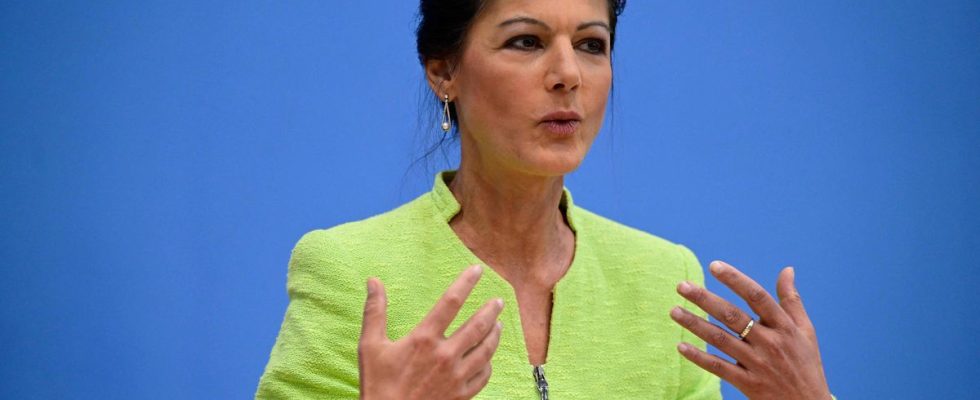This is the political news at the start of the week in Germany. Sahra Wagenknecht, one of the figures of the radical left, announced the creation of an association, which should be the platform for launching a new political party. For the moment, the association is called, very modestly, “Bündnis Sahra Wagenknecht” (BSW) for Alliance Sahra Wagenknecht. 20 minutes looks back on the journey of the woman who could well shake up the German political game.
Who is she ?
Very well known in Germany, but not at all on this side of the Rhine, Sahra Wagenknecht was born in 1969, in Jena, in the former GDR. A doctor in economics, she campaigned for a long time within the Party of Democratic Socialism, heir to the Communist Party of the GDR, before joining the radical left party Die Linke when it was created in 2007, and becoming a member of parliament in 2009. However, Die Linke strongly inspired the founders of the Left Party (PG), including Jean-Luc Mélenchon, who would subsequently become France Insoumise. And, in a prominent place at the PG launch meeting in November 2008, was Oskar Lafontaine. The latter is none other than the founder of Die Linke, a former defector from the SPD, disappointed by the social-liberal policy led by SPD chancellor Gerard Schroder in the 2000s. Doesn’t that remind you of anyone? Mélenchon, obviously. And to come full circle, know that Oskar Lafontaine has been in a relationship with Sahra Wagenknecht since 2011. Any resemblance with the Mélenchon-Chikirou couple is obviously purely coincidental.
Who is this new party?
Sahra Wagenknecht is not her first time. She had already made an attempt, at the end of 2018, by launching a similar movement, before giving up six months later. This time, she has been preparing the ground for months. This Monday, she took the plunge by leaving Die Linke, with nine other colleagues. From now on, it is a question of gathering funds and donations to be able to create the party and participate, next year, in the European elections. She intends to take advantage of the current political reorganization in Germany, particularly with the rise of the far-right party via Alternative for Germany (AfD), to assert herself. “This of course worries many people who no longer know who to vote for or who vote far right out of anger or despair,” she argued.
What is his political line?
During her launching press conference, Sahra Wagenknecht developed a popular, sometimes populist left-wing line, close to that adopted by Fabien Roussel in France, aiming to recover the AfD electorate. The radical left’s passionaria criticized the government’s ecological measures in the face of climate change and economic sanctions against Moscow which deprive Germany, an industrial exporting country poor in raw materials, of the cheap energy it needs. She also said she was in favor of reducing the number of migrants in the country, a battlehorse of the AfD. Overall, she called for “maintaining our economic strengths”, more social justice, investments in infrastructure and a “foreign policy based on peace”. In short, “a return to reason,” she says.
“She wants a left-wing AfD,” summarizes the daily Bild. This party has surged in the polls over the past year, riding on public discontent with the increase in immigration and the economic crisis. He is thus credited with 22 or 23% of voting intentions. Like the AfD, Sahra Wagenknecht has its main reservoir in the former communist East Germany, where three regional elections (Saxony, Brandenburg and Thuringia) are scheduled for next year. “The AfD should be very concerned” about the emergence of this competing party, said political scientist Constantin Wurthmann on the Phoenix channel. Without a doubt, the French left (and Jean-Luc Mélenchon) will carefully follow the performance of this new party.

